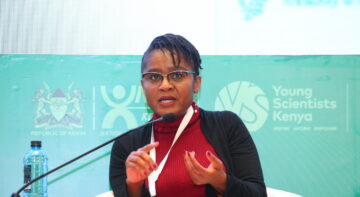Events
Between 10-12 October 2019, AFIDEP and partners will hold an inception meeting to develop a work plan for a new initiative aimed at strengthening institutional capacity for evidence use in the Ministries of Health in Kenya, Uganda, and Malawi.
The Heightening Institutional Capacity for Government Use of Health Research (HIGH-Res) project brings together a consortium of partners that include the Kenya Medical Research Institute (KEMRI); the Uganda REACH-PI; the Malawi EvIDeNt network (comprising the Malawi Liverpool Wellcome Trust Centre (MLW), and the College of Medicine at the University of Malawi).
Under the HIGH-Res East Africa Consortium, the Ministries of Health, AFIDEP and partners will design, implement and evaluate innovative and politically responsive interventions that leverage and build on existing relationships and collaborations among the partners to maximise programme impact on building institutional capacity for evidence-informed decision-making (EIDM).
“A major activity of the initiative will be working with Technical Working Groups to build capacity and support sustained use or consideration of research and data in their deliberations,” according to Dr. Rose Oronje, Director of Public Policy and Communications at AFIDEP, and project lead on the High-Res project. The Technical Working Groups are existing structures within the Ministries of Health that convene Ministry officials and stakeholders to deliberate and provide recommendations on policy and programming for health sector service provision.
Another intervention is to jointly work with training institutions to incorporate training modules on evidence-informed decision-making in existing pre-service and in-service training programmes for civil servants. This will ensure that all civil servants in these three countries have access to training programmes that will improve their skills in using research and other evidence in decision-making.
HIGH-Res is supported by the Alliance for Health Policy and Systems Research and Wellcome Trust. The project will be implemented over a period of three years between September 2019-August 2022.
Related Posts




